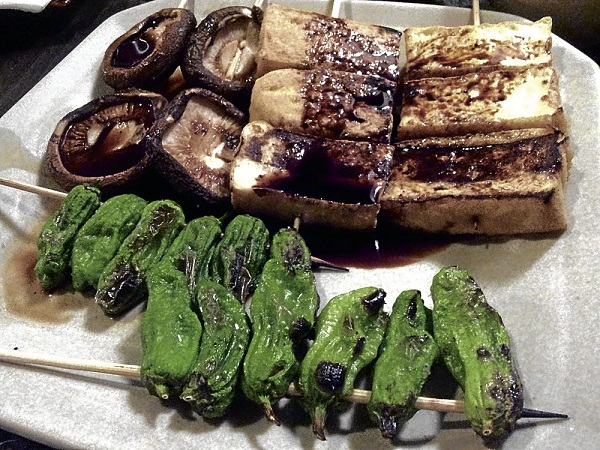
FOR A HEALTHIER 2013, your diet option must include shiitake mushroom, tofu and green bellpepper. Photo by Tessa R. Salazar
IT’S NOT a fad diet. It’s science-based, and should last much more than the year.
The case for whole foods and plant-based nutrition went up another level just recently when the Physicians Committee for Responsible Medicine—a US-based organization of clinical researchers, medical doctors, registered dietitian-nutritionists, nurses and lay people—endorsed a project called Vegan Resolution, with a website and a Facebook page https://veganresolution.org/.
In a PCRM online forum, Susan Levin, MS, RD, PCRM director of nutrition education, said the group has been encouraging the public to “get as many people as possible to make a vegan-related resolution, whether it’s (going) vegan for a day, week, or year, or making a new year resolution that is vegan themed.”
Powerful step
A PCRM vegetarian starter kit explains that eliminating meat (all animal products including pork, beef, chicken, poultry) and dairy products from one’s diet, while increasing fruit and vegetable intake, is a powerful step in disease prevention.
In another statement, PCRM stressed that the so-called organic meat offered as a means for people to reduce their exposure to hormones and chemical toxins are not actually health foods, and wouldn’t prevent one from avoiding lifestyle diseases. It said, “while concentrations of some contaminants may be decreased, switching to organic meat does nothing to decrease the risk for the diseases.”
It added, “Cholesterol, fat (especially saturated fat) and animal protein are the major culprits in meat that are associated with higher risks of heart disease, diabetes and some cancers. They are also associated with the development of the many risk factors that lead to these diseases, including obesity and hypertension. Animal products, however they are produced, increase the risk of many diseases.”
PCRM also said meat contains animal protein, saturated fat, and, in some cases, carcinogenic compounds such as heterocyclic amines (HCA) and polycyclic aromatic hydrocarbons (PAH) formed during the processing or cooking of meat.
For those who aim for a smooth and tasty meatless transition, use the Internet and go to helpful social networking sites such as happycow.net (just type your location), join Pinoyvegs on Facebook or check out Inquirer’s Talk of The Town December 29, 2012 issue (https://opinion.inquirer.net/43737/sans-ill-side-effects).
T. Collin Campbell, professor emeritus of nutritional biochemistry at Cornell University and coauthor of “The China Study” with Thomas M. Campbell II, MD, encourages those who are planning to give up all meat products including fish, cheese, milk and eggs, to give it one month.
One-month trial
“You’ve been eating cheese burgers your whole life; a month without them won’t kill you. A month isn’t enough time to give you any long-term benefits, but it is long enough for you to discover the following:
• There are some great foods you can eat in a plant-based diet that you otherwise may never have discovered.
• It’s not all that bad. Some people take to this diet quite quickly and love it. Many take months to fully adjust to it.
• You’ll feel better. Even after only a month, most people will feel better and likely lose some weight, too.
• Most importantly, you’ll discover that it’s possible. You may love the diet, or you may not, but at the very least you’ll come away from your one-month trial knowing that it’s possible. You can do it if you choose to.